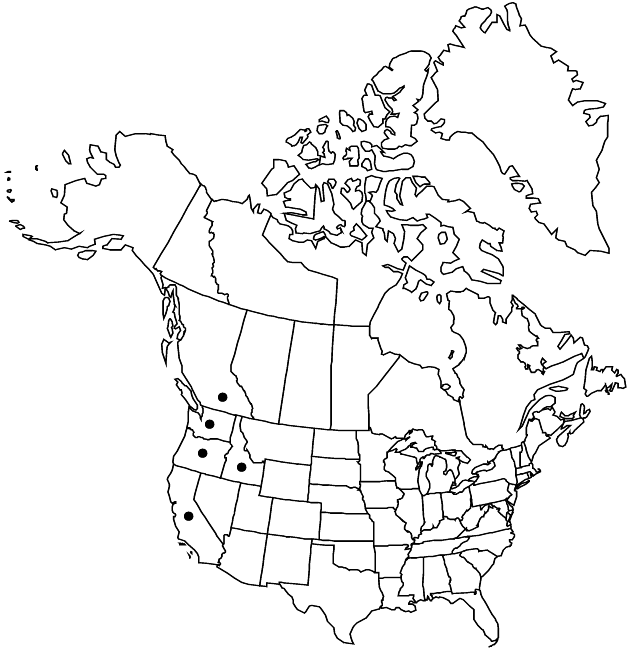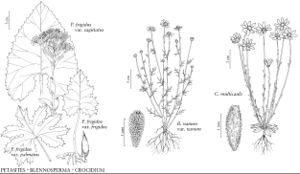Crocidium multicaule
Fl. Bor.-Amer. 1: 335, plate 118. 1834.
IllustratedEndemic
Treatment appears in FNA Volume 20. Treatment on page 641.
Leaf-blades: basal 10–25+ × 3–8 (–12+) mm, entire or toothed; cauline 3–12 × 1–4 mm, mostly entire. Involucres 3–5 (–7+) mm. Ray-florets: corolla-tubes 1–1.5 mm, laminae oblong to elliptic, 3–6 (–10) mm. Disc-florets: corolla-tubes 0.7–1.5 mm, throats 0.5–1.1 mm, lobes 0.5–0.9 mm. Cypselae 1.5–2.5 mm; pappi 2–4 mm. 2n = 18.
Phenology: Flowering Feb–Jun.
Habitat: Grassy, mossy, or bare, often disturbed, sometimes wet sites in chaparral, oak forests, conifer forests, and sagebrush scrub
Elevation: 90–1500 m
Distribution

B.C., Calif., Idaho, Oreg., Wash.
Discussion
Selected References
None.
Lower Taxa
None.
... more about "Crocidium multicaule"
introrse +
connate +
papillate +
truncate-penicillate +
scarious +
hispidulous +
papillate +
continuous +
decurrent +
nerved +
oblanceolate;lanceolate or linear +
winged;nerved;ribbed +
1;15 +
stigmatic +
barbellulate +
white +
persistent +
absent +
20;40 +
absent +
not 2-lipped +
yellow +
5(-6)-nerved +
papillate-hairy +
1.5mm;2.5mm +
staminate +
straight +
distinct +
proximal +
1;5 +
bisexual +
dispersed +
Grassy, mossy, or bare, often disturbed, sometimes wet sites in chaparral, oak forests, conifer forests, and sagebrush scrub +
singly +
indeterminate +
Present +
surrounding +
hemispheric +
toothed;entire +
1mm;4mm +
alternate +
erect;spreading +
? (?) +
2-carpellate +
inferior +
attached +
anatropous +
fragile +
falling +
tough +
thick +
absent +
connate +
persistent +
connate +
herbaceous +
falling +
erect +
subequal +
equal +
Fl. Bor.-Amer. +
1834 +
absent +
fertile +
epaleate +
dome-shaped;conic +
fibrous +
exalbuminous +
modifed +
alternate +
erect +
2-branched +
glabrous +
papillate +
Crocidium multicaule +
Crocidium +
species +
longer +
cylindric +
annual +
